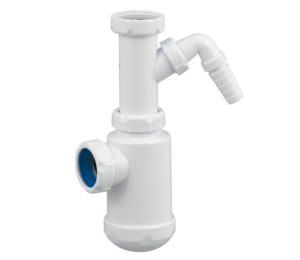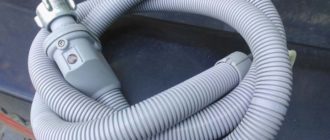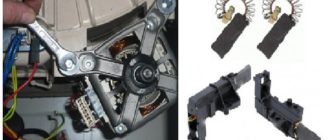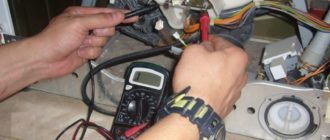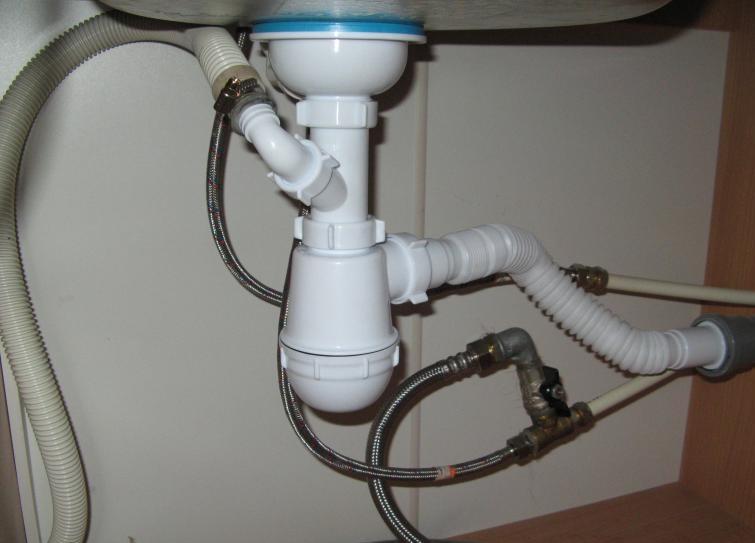 Siphon - an important link between the washing machine and the drain, acting as a hydraulic plug of the technique. Properly organize the process drain and connect the washing machine to the drainage system without a siphon will not work.
Siphon - an important link between the washing machine and the drain, acting as a hydraulic plug of the technique. Properly organize the process drain and connect the washing machine to the drainage system without a siphon will not work.
Types of siphons for washing machines
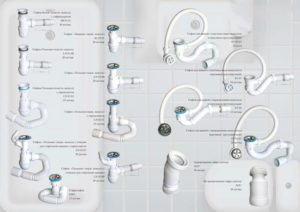 Siphons in the market of modern plumbing a great variety. They differ in:
Siphons in the market of modern plumbing a great variety. They differ in:
- size;
- shape;
- installation;
- the number of outlets, etc.
Sometimes siphons look so ridiculous that it is impossible to imagine what kind of invention it is and where to use it.
Siphon with a diverter under the washing machine
Looks like a simple siphon, which we are accustomed to see under the washbasin. Only this type is additionally equipped with a branch pipe or outlet at the side, to which is connected water drainage hose.
A very popular option, but for the establishment of a quality washing process is not suitable. Unless the washing appliance is installed under the sink with a countertop.
Siphon splitter
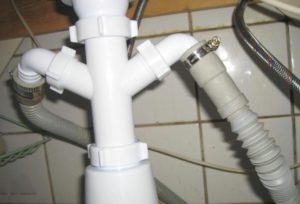 This model allows you to establish at once a double connection.
This model allows you to establish at once a double connection.
It looks like a plastic tee. The first outlet goes to the sewage pipe, and the rest are containers for corrugated hoses.
One of them belongs to the washing machine, and the other to the sink drain.
Built into the wall
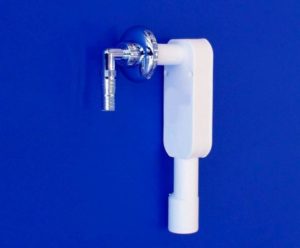
Pretty small and neat siphon, because most of it sinks into the wall with the sewer pipe.
Outwardly visible only part of the body with a socket for the drain hose from the washing machine.
Concealed siphon is made with one or more outlets.
Device with a non-return valve
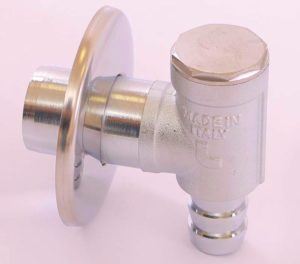 A recent invention, but very popular in the world of plumbers.
A recent invention, but very popular in the world of plumbers.
Characterized by the fact that the wastewater in the case of clog can not get into the washing machine thanks to the check valve.
Very relevant for residents with apartments on the first floors of multi-storey buildings.
Flat siphons
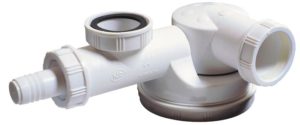 It is convenient to use this type when placing the washing machine under the sink, when there is a minimum distance between the sink and the cover of the washing machine.
It is convenient to use this type when placing the washing machine under the sink, when there is a minimum distance between the sink and the cover of the washing machine.
The compact model and easy installation have brought this type a great popularity.
How the siphon works
This detail successfully copes with:
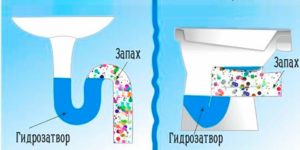 unpleasant odorsodors that can sometimes come from the sewer pipe;
unpleasant odorsodors that can sometimes come from the sewer pipe;- large amounts of debris that can clog up the pipe. The siphon can be cleaned very easily, simply by unscrewing the trap;
- "siphon effect", thanks to the bend of the part made at an angle. The same bend simplifies the work of the pump.
Installation of the siphon
1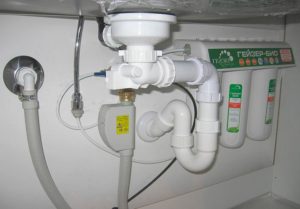 optionThe washing machine is located under the sink. In this case, you can buy a flat siphon or built-in siphon for the washing machine.
optionThe washing machine is located under the sink. In this case, you can buy a flat siphon or built-in siphon for the washing machine.
The flat siphon is connected to the sink drain, the first end is needed for the corrugated washing hose and the other end is tucked into the sewer pipe.
The drain hose is inserted into the second outlet and secured with a clamp.
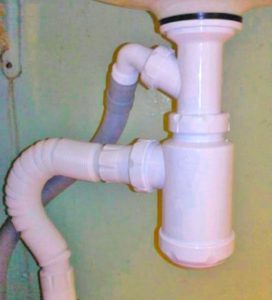 Option 2Washing machine stands on the right or on the left from a sink under a countertop.
Option 2Washing machine stands on the right or on the left from a sink under a countertop.
Any type of siphon with an outlet for the washing machine will do.
But, given the fact that this part will be open to public view, it may be worth choosing a model of siphon more compact, for example, recessed in the wall.
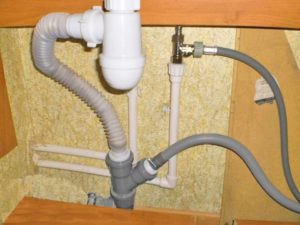 Option 3.When the machine is installed at a great distance from the sink. It is possible to use any siphon, as long as it does not cut into the eyes. It is important to take into account the fact that at a great distance, the length of the standard drain hose may not be long enough and then it will be necessary to buy an extended hose instead of the existing one. Extension is not allowed because of the additional load on the pump.
Option 3.When the machine is installed at a great distance from the sink. It is possible to use any siphon, as long as it does not cut into the eyes. It is important to take into account the fact that at a great distance, the length of the standard drain hose may not be long enough and then it will be necessary to buy an extended hose instead of the existing one. Extension is not allowed because of the additional load on the pump.

